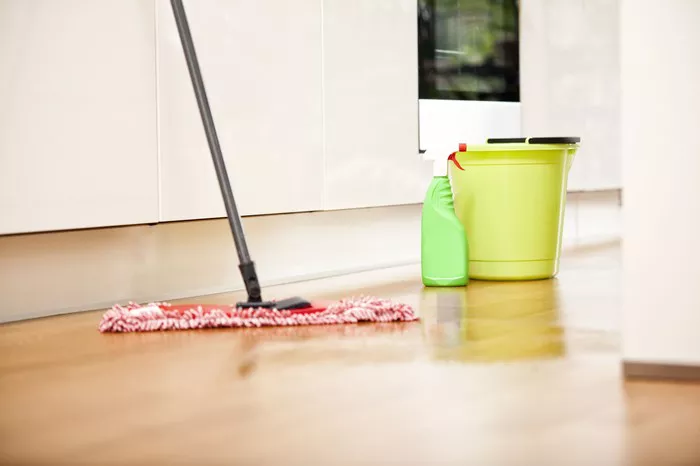Maintaining clean and hygienic floors is crucial for a healthy environment, whether at home or in a professional setting. Floors are exposed to constant foot traffic, spills, and dust, which can harbor germs and bacteria if not cleaned properly. An effective cleaning routine not only improves the appearance of floors but also contributes to overall health and well-being by reducing the risk of infections and allergens.
In this article, we will explore the most hygienic methods for cleaning floors, including the best cleaning practices, tools, and techniques. We will cover various types of flooring and provide practical tips to ensure your floors are as clean and sanitary as possible.
Types of Flooring and Their Cleaning Needs
Hardwood Floors
Hardwood floors add elegance and warmth to any space but require special care to maintain their beauty and hygiene. They are prone to scratches and water damage, so it is essential to use appropriate cleaning methods.
Tile Floors
Tile floors, including ceramic and porcelain, are durable and resistant to stains. However, grout lines can trap dirt and bacteria, making it important to clean both the tiles and grout thoroughly.
Vinyl and Laminate Floors
Vinyl and laminate floors are low-maintenance and resistant to moisture. They can mimic the look of natural materials but require specific cleaning techniques to avoid damage.
Carpeted Floors
Carpeted floors provide comfort and insulation but can harbor dust mites, allergens, and stains. Regular vacuuming and deep cleaning are necessary to keep carpets hygienic.
Best Practices for Cleaning Floors
1. Sweep or Vacuum First
Before applying any cleaning solution, it is crucial to remove loose dirt and debris. Sweeping or vacuuming helps prevent scratches and ensures that the cleaning solution can work effectively.
- Hardwood and Tile Floors: Use a soft-bristle broom or a vacuum with a hard floor setting to avoid damaging the surface.
- Carpeted Floors: Use a vacuum cleaner with a HEPA filter to trap allergens and dust mites.
2. Choose the Right Cleaning Solution
Selecting an appropriate cleaning solution is essential for maintaining floor hygiene without causing damage. Different types of floors require different cleaning products.
- Hardwood Floors: Use a pH-balanced cleaner specifically designed for hardwood. Avoid using excessive water, which can warp the wood.
- Tile Floors: A mixture of warm water and a mild detergent works well. For grout, consider using a specialized grout cleaner or a paste made from baking soda and water.
- Vinyl and Laminate Floors: Use a cleaner formulated for vinyl or laminate. Avoid harsh chemicals or excessive water that can damage the surface.
- Carpeted Floors: Use a carpet cleaner suitable for your carpet type. For stain removal, consider enzymatic cleaners that break down organic stains.
3. Use the Right Tools
Using the correct cleaning tools ensures better results and helps maintain the longevity of your floors.
- Mops and Buckets: For hard floors, use a microfiber mop that can effectively trap dirt and bacteria. Ensure the mop is well-wrung to avoid excess water.
- Steam Cleaners: Steam cleaning can be effective for disinfecting hard floors and removing stubborn stains, but ensure it is suitable for your floor type.
- Carpet Cleaners: Use a carpet cleaner with a rotating brush and hot water extraction for deep cleaning carpets.
4. Clean in the Right Sequence
The sequence in which you clean your floors can impact overall hygiene.
- Start from the Far End: Begin cleaning from the farthest corner of the room and work your way towards the exit to avoid walking over freshly cleaned areas.
- Rinse and Change Water Frequently: When using a mop or cleaning cloth, rinse it frequently to avoid spreading dirt. Change the water in your bucket as needed.
5. Dry the Floors Thoroughly
After cleaning, ensure the floors are dried thoroughly to prevent slips and to avoid moisture damage.
- Hardwood Floors: Use a dry, soft cloth or mop to absorb any excess moisture.
- Tile Floors: Allow the tiles to air-dry, or use a dry microfiber mop to speed up the drying process.
- Carpeted Floors: If you have used a carpet cleaner, ensure the carpet is completely dry before walking on it to prevent mold growth.
see also: How Do Scrubbers Help the Environment?
Additional Tips for Specific Cleaning Challenges
Dealing with Stubborn Stains
For stubborn stains on hard floors, such as ink or grease, use a spot cleaner specifically designed for the type of stain and floor material. For carpets, treat stains promptly with appropriate stain removers and avoid scrubbing, which can spread the stain.
Handling Allergens
To reduce allergens on carpets, use a vacuum cleaner with a HEPA filter. Consider using an air purifier to complement your cleaning routine. For hard floors, dust and allergens can be minimized by using a damp mop rather than a dry mop, which can stir up dust.
Preventing Bacterial Growth
To prevent bacterial growth, especially in high-traffic areas, use disinfecting floor cleaners or solutions. Regular cleaning with antibacterial agents can help maintain a hygienic environment.
Conclusion
Maintaining hygienic floors involves more than just regular cleaning; it requires the use of appropriate techniques, tools, and cleaning solutions tailored to the type of flooring. By following best practices such as sweeping or vacuuming first, choosing the right cleaning products, and using proper tools, you can effectively manage the cleanliness and hygiene of your floors.
For specific floor types, always adhere to the manufacturer’s recommendations and avoid harsh chemicals that could cause damage. Regular and thorough cleaning will help ensure a healthy and attractive environment in your home or business.

